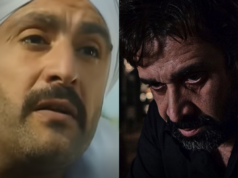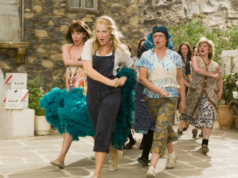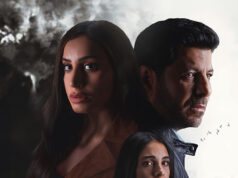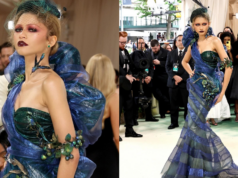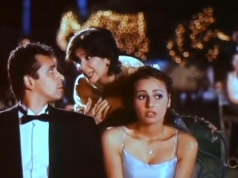You can say all you want about 2020 and, honestly, whatever you say will probably be right one way or another. You can say it’s been a tough year or a year that taught us all some very harsh lessons.
But you’ll also have to say that it was one hell of a year for women, in both good and bad ways. And if you don’t remember, allow us to recap it for you.
Rise of a nation-wide anti-harassment movement
You might not remember where you were when you heard about the countless testimonies outing Ahmed Bassam Zaki as a full-fledged predator with an incomprehensible number of survivors coming forward and even reporting him to the police.


But if you don’t remember that, then you remember the subsequent posts, videos, and tweets that came out as a result. And you must remember survivors of past crimes of harassment and rape coming forward to talk (some of whom had talked before, though it hadn’t gained much attention then) and expose their harassers and rapists.
Including those who came forward to expose the Fairmont gang rapists and their harrowing crimes that had happened years prior. Because this is just what the movement spurred — seeking justice for yourself and others, even if it never seemed like a possibility for some before or for others, whose attempts were quietly swept under the rug.


And, of course, all of this got everyone in Egypt collectively talking about rape culture and apologists — none more than Assault Police, which launched as a result of this movement.


“Every time a woman opened her mouth,” Assault Police founder Nadeen Ashraf said in an interview, “someone taped it shut. I wanted to change that.” With viral content, Zaki’s arrest a week after the page launched, and an Egyptian law protecting rape/harassment victims’ identities amended, it’s safe to say AP is doing just that.
The sad truth about just what “societal and familial morals” are
Nothing surprises anyone anymore, not even the fact that some people are just treated horribly because of their gender, first and foremost, and their “perceived” social standing. And nothing highlights that more than the dozens of TikTok girls and young women who were arrested for being themselves or dressing how they wanted.


And, yet, that doesn’t mean the public left them behind. With every passing TikTok girl arrest, Egyptians on social media came through with hashtags and facts in support and campaigned (and are still campaigning) against the very behaviors that make these arrests a reality.
Social media singlehandedly stopped an accused serial rapist from performing in Egypt
As horrendous as it sounds, no, not everyone took note of the anti-harassment movement since Cairo Show booked a Saad Lamjarred show, despite the many rape cases that man was accused of. But the show’s confirmation didn’t last long.
As soon as Egyptian social media caught wind of the news, a collective campaign was launched calling for the show’s cancellation for many, many reasons…and guess what? The show was actually cancelled soon after, with campaigners against it including actress Rosaline Elbay.
“When you platform men like this,” the actress said, in a tweet to Cairo Show, “you tell every woman in your cast, crew, and audience that her life and safety don’t matter.”
Egyptian media actually took the side of Egyptian women
During times like these, it’s sad to say that our media has taught us one thing. To never really expect much from it when it comes to cases about rape and harassment, except in the context of “she deserves it; look at her leaked private photos“.
This year, though, was a shock in the best kind of way. In the wake of the cases going virally into the public eye, Egyptian media was firmly on the survivors and victims’ side, finally saying that ‘no meant no‘ and condemning rape and harassment. And not only that — one of these media anchors, Radwa El-Sherbiny helped out even more by aiding victims in reporting their cases.
We had some much-needed conversations about sexualizing literal children
As horrifying as it was, this was a conversation that needed to be had and if you’ve been on social media at all, especially in Egypt, you’ll know it was about time. See, the most recent reason for this was a photo Ahly SC player Amr El-Solia posted with his daughter — yes, the three year-old.


The resulting comments, all disgusting and sexually objectifying a toddler, didn’t go unnoticed by Solia, who denounced the actions, or the public, who rallied behind him and indulged in conversations about that very issue.
We also had some very important conversations about sexuality
This year was one of awareness on each and every subject, including bodies and female sexuality too. With pages like This Is Mother Being emerging, whatever ingrained shame existed about bodies, periods, and vaginas was slowly getting eradicated as women learned about their bodies more.


On reaching out to This Is Mother Being‘s founder, Nour Emam, she told us this: “I definitely think that 2020 was the year of Egyptian women slowly taking their power. This year, I was trying to abolish misunderstood notions and empowering the women of Egypt and the MENA region.”
“I did this through education, body awareness, and literacy“, Emam added. “And I think it has worked because the platform gained thousands of followers just this year. It’s like a light bulb switched on for a lot of women and they got to the point no return — they know things now and they can’t unlearn them. And it’s wonderful to see them feeling this empowered and connected to their bodies.“
Solidarity with AND among Egyptian women reached an all-time high
Perhaps one of the best things about this year was this — Egyptian women banded together through it all. And, yes, you can say that this solidarity has been a reality for many years.


But this year, it was finally highlighted and it made some people realize that women — and all people actually, but mostly women — should stick together and fight for their justice with no fear or shame.
And by women’s solidarity, we mean all sorts of women, including activists who prefer anonymity, other activists like Malak Boghdady and Sabah Khodir and Merhan Keller, and actresses like Rosaline Elbay and Asmaa Galal (the only CIFF attender who posted something about the About Her movie director) and Aida El-Kashef.


And their efforts, as well as the efforts of the countless people in the movement, weren’t in vain. Whether through official reports or videos or tweets/posts, laws were proposed, arrests are finally being made, and even uproar-causing acquittals were brought under the microscope.
“Just like how I’ve defended women and their right to wear their hijabs anywhere as long as they chose it,” Sabah Khodir said in one video, “I’m also defending a woman’s right to just wear a white dress and get her photo taken — I don’t have to be exactly like the person so I can defend them.“
Merhan Keller, who has won her case against Tamer Amin this year, also added her voice, telling us: “I think 2020 was the year. In 2019, when I first spoke up against Amr Warda and the entire nation was against me, saying that I was asking for it and “he can’t just bother you out of nowhere, you must have seduced him”. I literally had nobody. I used to cry because I wasn’t understood and I was attacked because I objected that a man sent me sexually-coded videos—my own family was against me.“


“Now in 2020, I have a huge circle of powerful women who supported me and told me that I wasn’t crazy“, Keller, who has been using all her resources to help survivors who reached out to her, added. “I felt loved and empowered because we relate to each other’s stories. 2020 was a breakthrough—it was a year of bravery and solidarity and support. I’m proud that I managed to create a community, a safe space where we can share our stories without being ashamed. I’m proud of Nadeen for creating Assault Police—and look at all what we’ve accomplished! We got Ahmed Bassam Zaki, the Fairmont case, and Amina and Sara—the honor-killing case I worked on. I had no hope but I wanted them to be remembered and respected—because nobody gives us that—so the killer’s face circulated everywhere and he’s now awaiting trail. We did all of that in one year so imagine what we can do in the coming years!“
Adding to this, Aida El-Kashef told us that the progress that we’ve made so far was a long time coming, since 2011 to be precise.


“Since the uprising of 2011, women have been reclaiming power through different channels and using different tools“, El-Kashef said. “We took a leap in the past decade, especially this year, and that’s huge and worth celebrating — but it’s important always keep ourselves and others in check, to keep on pushing forward while revising and critically looking at our tactics and tools to make sure we don’t get too comfortable in them that they become too docile or irrelevant over time.”
“2020 was a real of realization for the whole planet — everyone realized that health is wealth“, Malak Boghdady said. “Egypt had a bigger realization — women are no longer toys. I’m proud of the feminist/anti-harassment movement that grew this year because it was about time this country realized that women MUST be safe everywhere all the time. And that women aren’t weak any longer and will protect their bodies from heartless savages who harass and blame it all on them.
Boghdady added this: “The media and the law are good supporters to women now and as a woman, my role is to fully empower women to speak up, know their rights, and demand them in full. If this movement keeps getting bigger and stronger, I feel there’s a safer future for Egyptian women at the end of the tunnel.“







